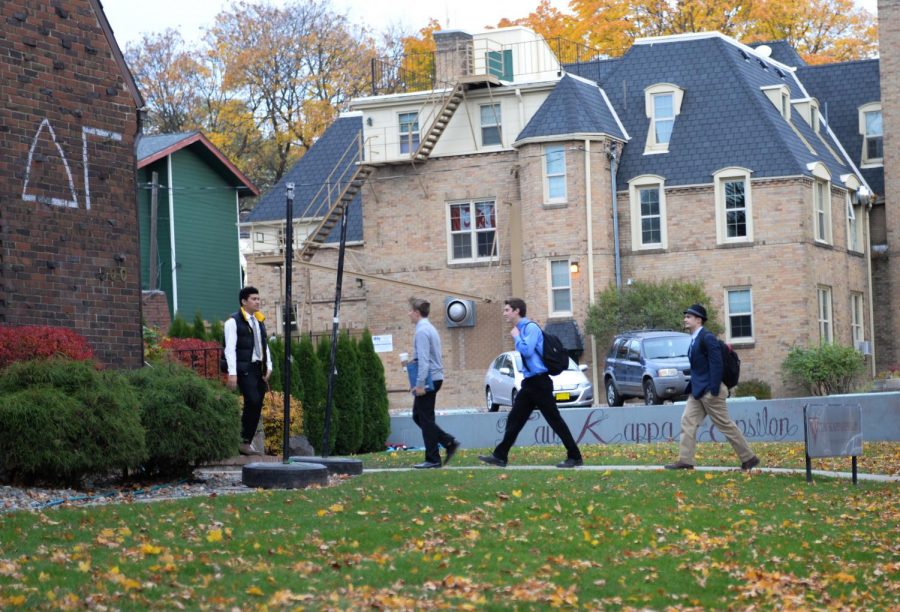Greek system is more than just stereotypes
Outdated misconceptions of the system fail to account for community service, charity
JEMMA GONZALEZ | DAILY EVERGREEN FILE
WSU Greeks make a greater contribution to the community than stereotypes would have you believe.
September 7, 2018
University Greek systems are a popular topic of conversation on most campuses. It seems that people either love or hate them.
The people who love Greek life are usually a part of it and appreciate being involved with the community. The people who don’t appreciate it usually aren’t part of Greek life and don’t know everything Greek life offers. Stereotypes take a long time to change, and misconceptions about Greek life are no different.
These days, it seems every time I look at a news site or turn on the TV, the media sensationalizes negative stories in order to build readership and improve ratings. That applies to the Greek system as well.
Most stories about Greek life seem to be about sexual assault or hazing rather than something positive.
When most people hear the word fraternity or sorority, the first thing they think of is partying. But being a part of Greek life is so much more than that.
All fraternities and sororities are based on strong values like scholarship, leadership, service, community, brotherhood and sisterhood.
The Greek system at WSU is involved with the greater Pullman area. Through community service and support of local charities, Greeks give back to Pullman.
When I tell people about all the ways Greek students serve the Palouse, they often reply, “They only do community service because they have to.”
This is somewhat true as every Greek student at WSU must complete four hours of community service. However, most Greek students go above and beyond.
In fact, in 2017 WSU Greek students collected more than 41,000 hours of community service. With a Greek population around 4,000 students on campus, this shows that on average every Greek student is contributing about 10 hours, according to the Center for Fraternity and Sorority Life.
Additionally, each house chooses a charity to donate to and raises thousands of dollars each year in support of these organizations.
Another stigma about Greek life is that we don’t meet the same academic standards as the rest of the student body. In 2017, the average GPA for Greek students was 3.12. The average GPA for all undergraduates at WSU was only slightly above at 3.13, according to the Center for Fraternity and Sorority Life.
One of the reasons Greek students are able to maintain those grades is because we have mandatory study hours, which gets students in the habit of keeping their grades up. Fraternities and sororities also have strong support systems where members help struggling peers.
More than “frat dudes” and “sorority chicks,” the Greek system emphasizes and provides opportunities for personal development and leadership. Going Greek encourages you to talk to new people and get outside your comfort zone.
House offices, event organization, philanthropic endeavors and alumni interaction provide ample opportunities to hone interpersonal skills.
There are quite a few notable alumni who came from the Greek system at WSU — Microsoft co-founder Paul Allen and Edward R. Murrow, to name a few.
Greek life will always have negative stereotypes associated with it, but if people see beyond the negative connotations, they will appreciate the positive aspects of going Greek.
For me personally, I feel that the Greek system has helped me improve as a student and given me leadership opportunities. I’ve gained an appreciation for the community through our service and believe Greek life helped me become a well-rounded person.
I know the Greek system isn’t perfect, but too often our contribution to WSU is overshadowed by an incomplete perception of who we are. Times have changed and the Greek system is more than what it used to be.
It’s time to reconsider outdated stereotypes.





















